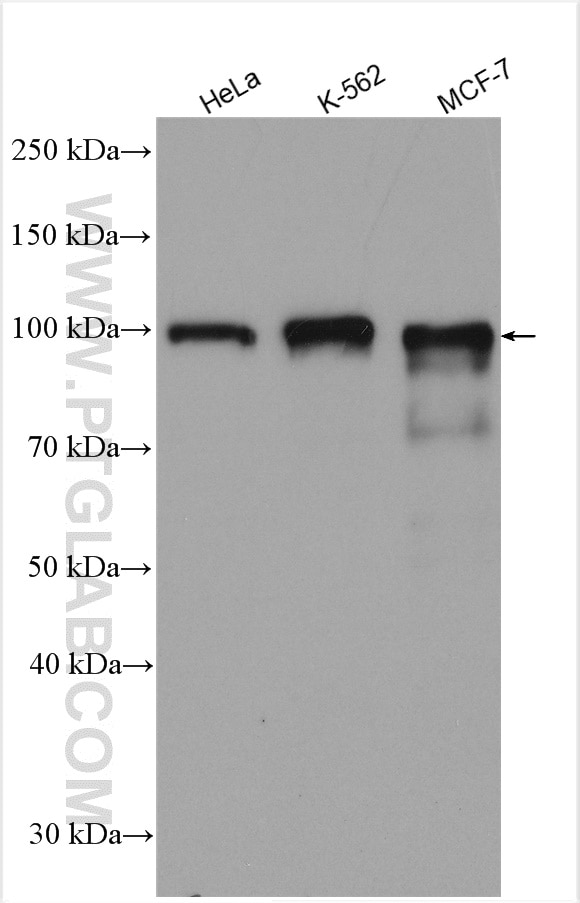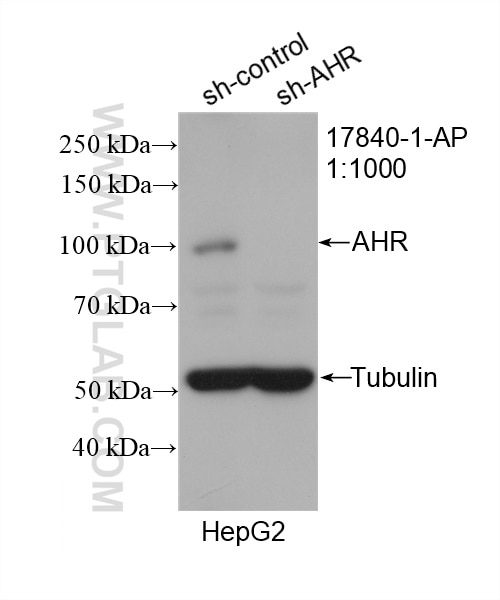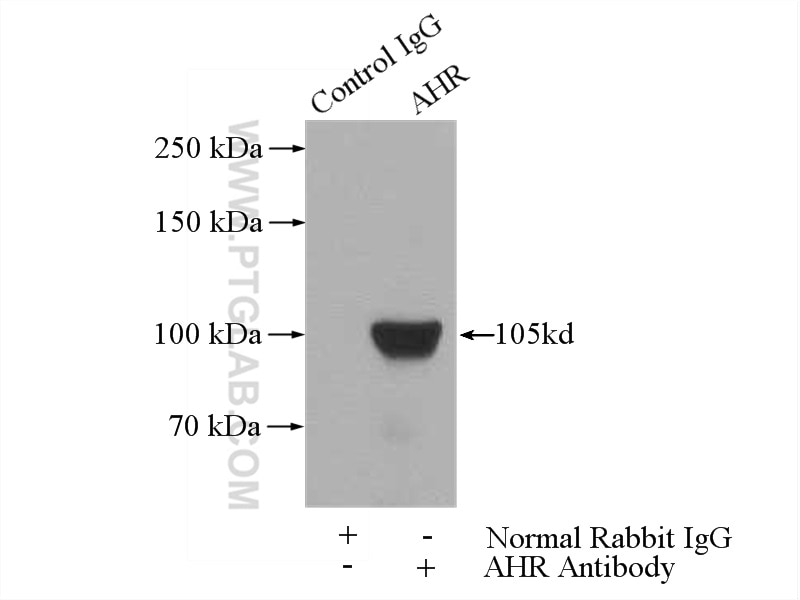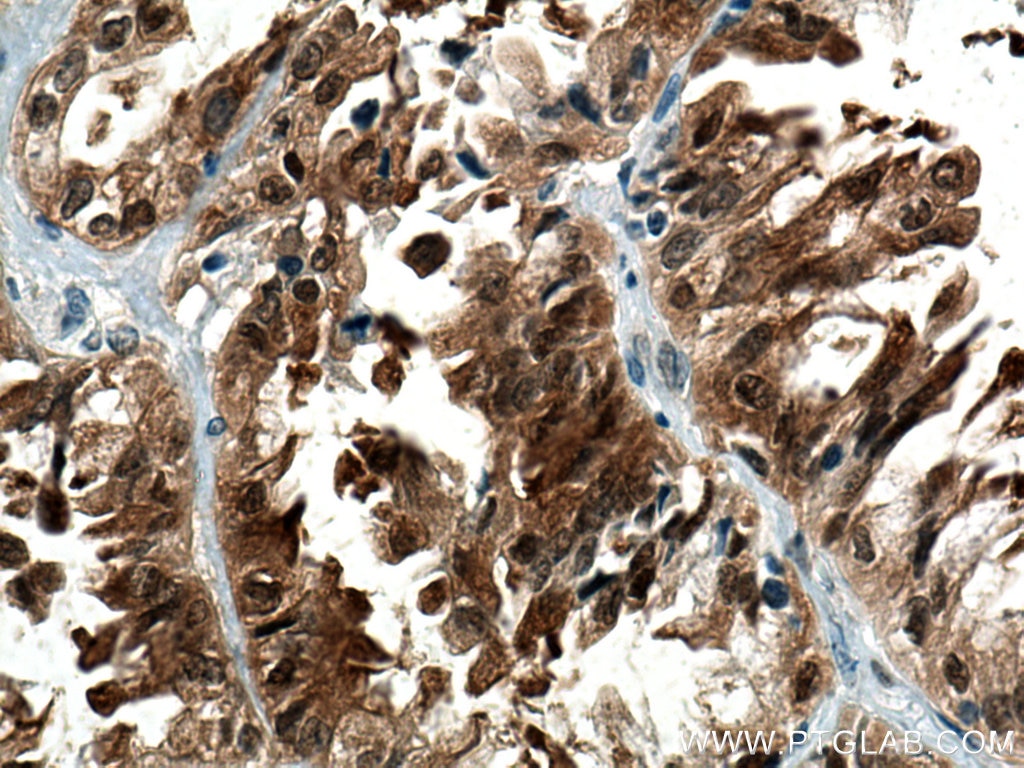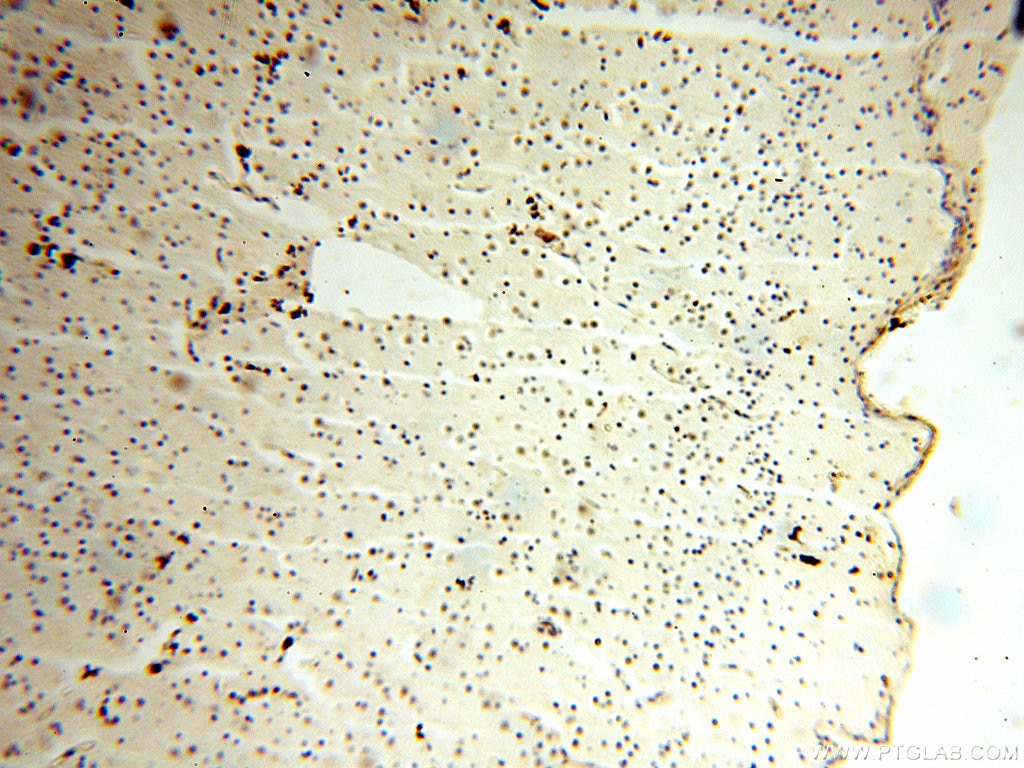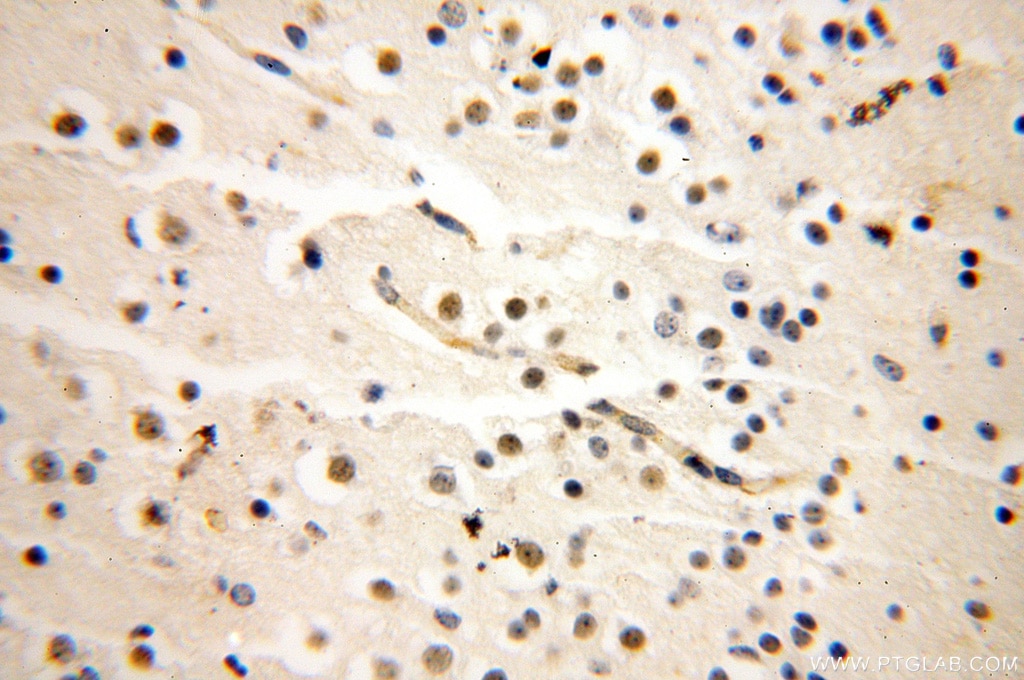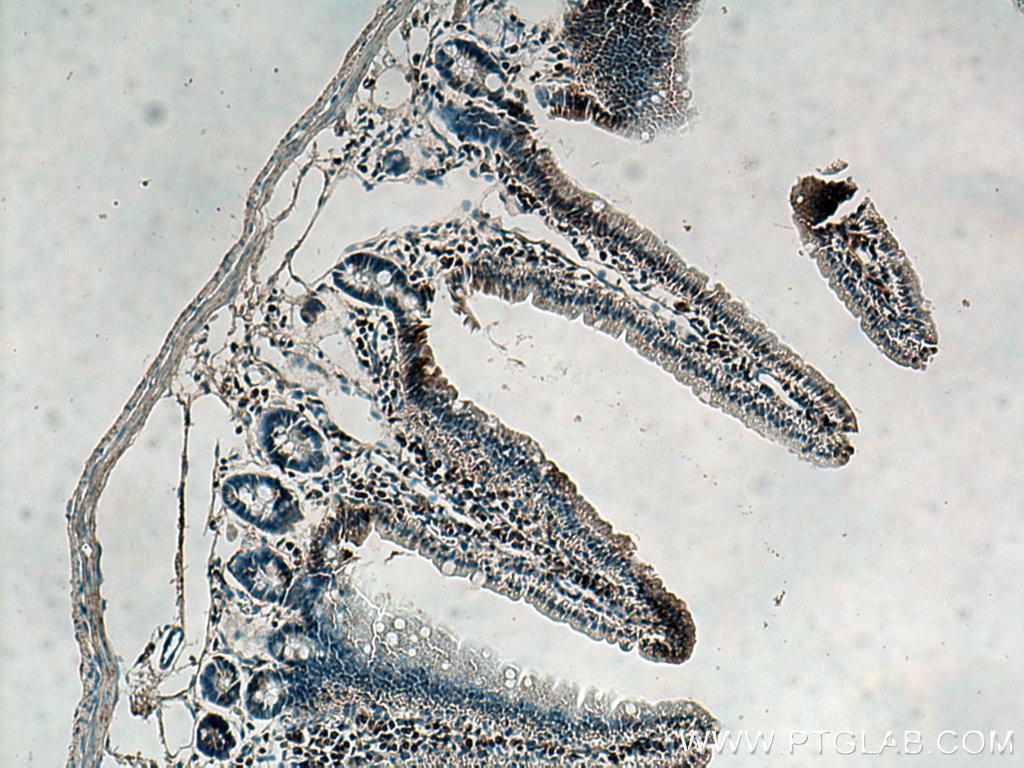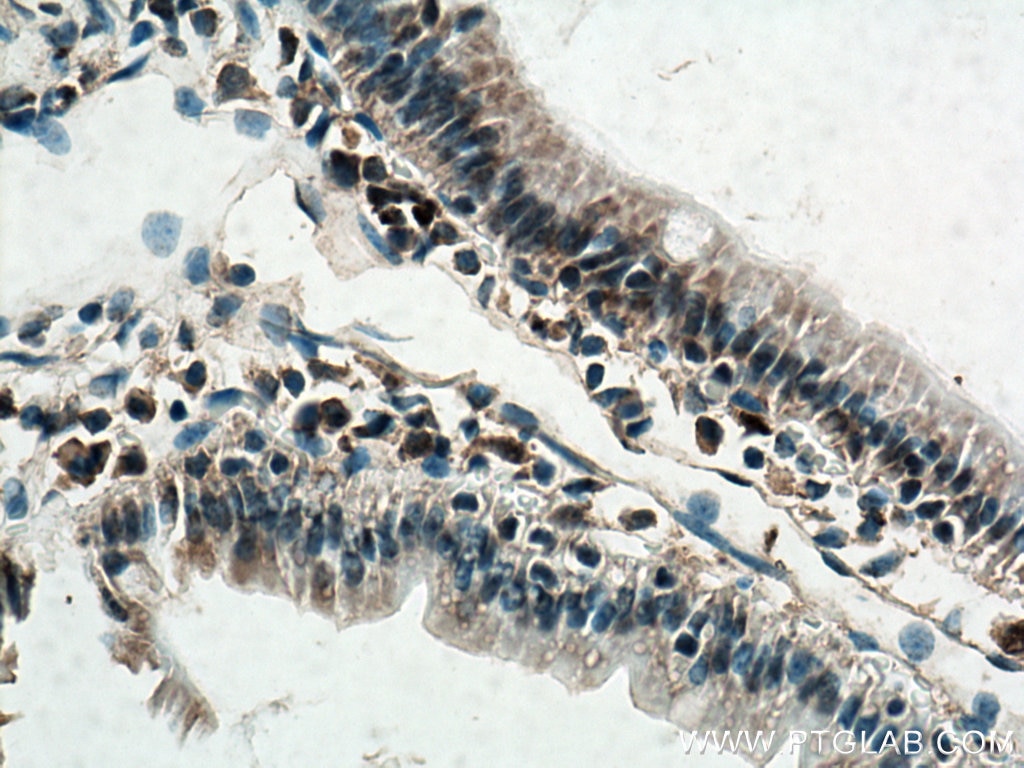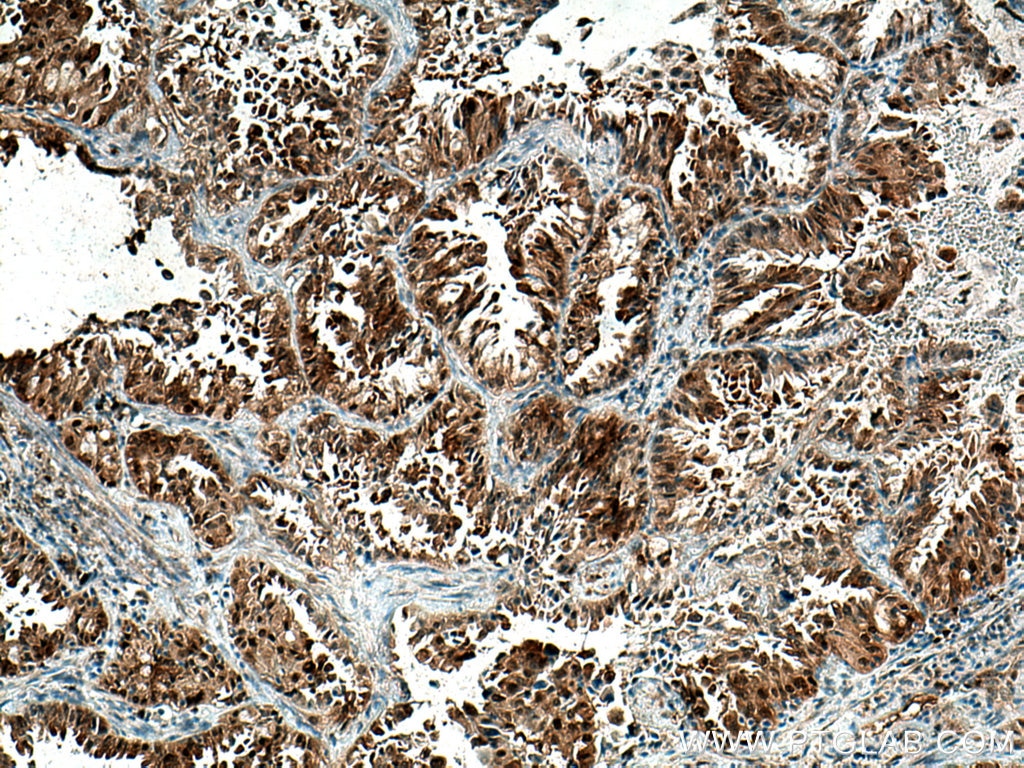This product has been discontinued. We recommend 28727-1-AP as an alternative.
For more information, please contact us.
Tested Applications
| Positive WB detected in | HeLa cells, HepG2 cells, K-562 cells, MCF-7 cells |
| Positive IP detected in | PC-3 cells |
| Positive IHC detected in | human lung cancer tissue, mouse small intestine tissue, human brain tissue Note: suggested antigen retrieval with TE buffer pH 9.0; (*) Alternatively, antigen retrieval may be performed with citrate buffer pH 6.0 |
Recommended dilution
| Application | Dilution |
|---|---|
| Western Blot (WB) | WB : 1:1000-1:4000 |
| Immunoprecipitation (IP) | IP : 0.5-4.0 ug for 1.0-3.0 mg of total protein lysate |
| Immunohistochemistry (IHC) | IHC : 1:50-1:500 |
| It is recommended that this reagent should be titrated in each testing system to obtain optimal results. | |
| Sample-dependent, Check data in validation data gallery. | |
Published Applications
| KD/KO | See 9 publications below |
| WB | See 43 publications below |
| IHC | See 11 publications below |
| IF | See 9 publications below |
| CoIP | See 1 publications below |
| ChIP | See 1 publications below |
Product Information
17840-1-AP targets AHR in WB, IHC, IF, IP, CoIP, ChIP, ELISA applications and shows reactivity with human, mouse, rat samples.
| Tested Reactivity | human, mouse, rat |
| Cited Reactivity | human, mouse, rat |
| Host / Isotype | Rabbit / IgG |
| Class | Polyclonal |
| Type | Antibody |
| Immunogen | AHR fusion protein Ag12193 Predict reactive species |
| Full Name | aryl hydrocarbon receptor |
| Calculated Molecular Weight | 848 aa, 96 kDa |
| Observed Molecular Weight | 105-110 kDa |
| GenBank Accession Number | BC070080 |
| Gene Symbol | AHR |
| Gene ID (NCBI) | 196 |
| RRID | AB_2226163 |
| Conjugate | Unconjugated |
| Form | Liquid |
| Purification Method | Antigen affinity purification |
| UNIPROT ID | P35869 |
| Storage Buffer | PBS with 0.02% sodium azide and 50% glycerol, pH 7.3. |
| Storage Conditions | Store at -20°C. Stable for one year after shipment. Aliquoting is unnecessary for -20oC storage. 20ul sizes contain 0.1% BSA. |
Background Information
The aryl hydrocarbon receptor (AhR) is a ligand-activated transcription factor that has been largely regarded as a mediator of xenobiotic metabolism [PMID:18483242]. It plays a part role in physiologic activities, including attenuation of the acute phase response, cytokine signaling, T helper (TH)17 immune cell differentiation, modulation of NF-κB activity, and regulation of hormonal signaling [PMID:20423157,18540824]. It also mediates transcription factor sequestering away from a gene promoter or tethering of the AhR to a transcription factor on a promoter. AHR calculated molecular masses differ by <10%, compared with the apparent molecular masses predicted from SDS-PAGE for the two receptors (105 and 95 kDa, respectively). (PMID: 8246913)
Protocols
| Product Specific Protocols | |
|---|---|
| WB protocol for AHR antibody 17840-1-AP | Download protocol |
| IHC protocol for AHR antibody 17840-1-AP | Download protocol |
| IP protocol for AHR antibody 17840-1-AP | Download protocol |
| Standard Protocols | |
|---|---|
| Click here to view our Standard Protocols |
Publications
| Species | Application | Title |
|---|---|---|
J Clin Invest Anakinra restores cellular proteostasis by coupling mitochondrial redox balance to autophagy | ||
J Immunother Cancer GCH1 induces immunosuppression through metabolic reprogramming and IDO1 upregulation in triple-negative breast cancer.
| ||
Theranostics Activating AhR alleviates cognitive deficits of Alzheimer's disease model mice by upregulating endogenous Aβ catabolic enzyme Neprilysin.
| ||
Br J Pharmacol AhR-STAT3-Hmox1/Ptgs2 signaling pathway may restrict ferroptosis and improve hMSC accumulation and efficacy in mice liver | ||
mSystems Impaired Intestinal Akkermansia muciniphila and Aryl Hydrocarbon Receptor Ligands Contribute to Nonalcoholic Fatty Liver Disease in Mice. | ||
J Invest Dermatol Aryl Hydrocarbon Receptor in Cutaneous Vascular Endothelial Cells Restricts Psoriasis Development by Negatively Regulating Neutrophil Recruitment.
|
Reviews
The reviews below have been submitted by verified Proteintech customers who received an incentive for providing their feedback.
FH Priya (Verified Customer) (10-03-2024) | Used this antibody for colon carcinoma cell line and mice tissue
|
FH Priya (Verified Customer) (06-21-2023) | Used this antibody for Caco2 cells andmice tissue
|
FH Hala (Verified Customer) (04-13-2021) | works good!
|
